Kwale Eye Centre
Having used my Kilimanjaro Hike as a fundraiser for the Kwale Eye Centre, I was keen to visit the centre and understand how the money is used.
I was given a great welcome by the founder, Dr Helen, the staff and visiting ophthalmologist Roger and shown around all the departments (even having my glasses cleaned and adjusted). Helen told me a lot about their work and the challenges they face on a daily basis. Apparently eye trauma (e.g. sticks in the eye) is much more common here than in UK – safety generally is not a high priority and eye protection less so.But the bulk of the work seems to be cataract-related, soling avoidable blindness.
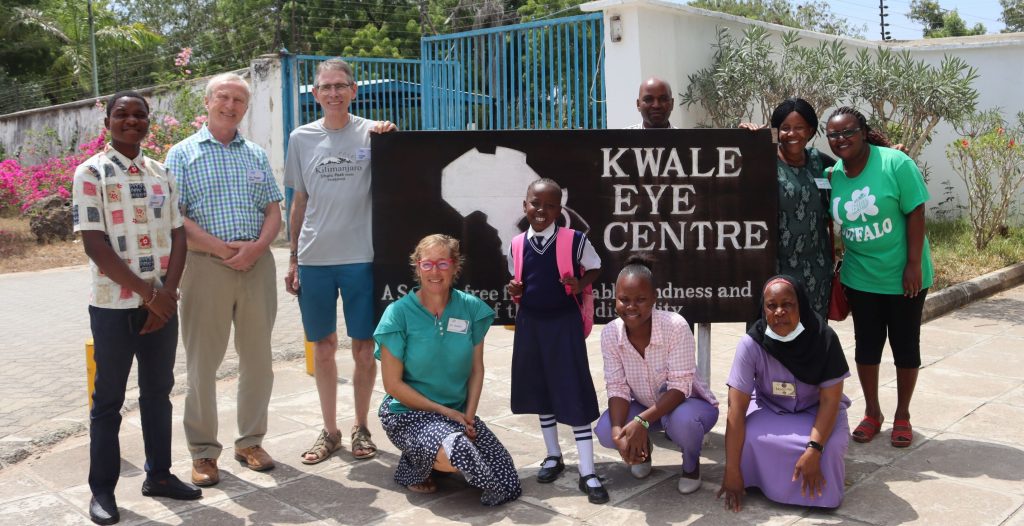
Then I went on a field visit with 2 of the staff, Vera and Mishi. We picked up a field worker by the road and went to visit 3 people who’d had eye surgery to check on their recovery, make sure they had medication. It was interesting for me and also for Vera who is normally office based and hadn’t appreciated the distances involved.
Me with Vera talking to the first patient.
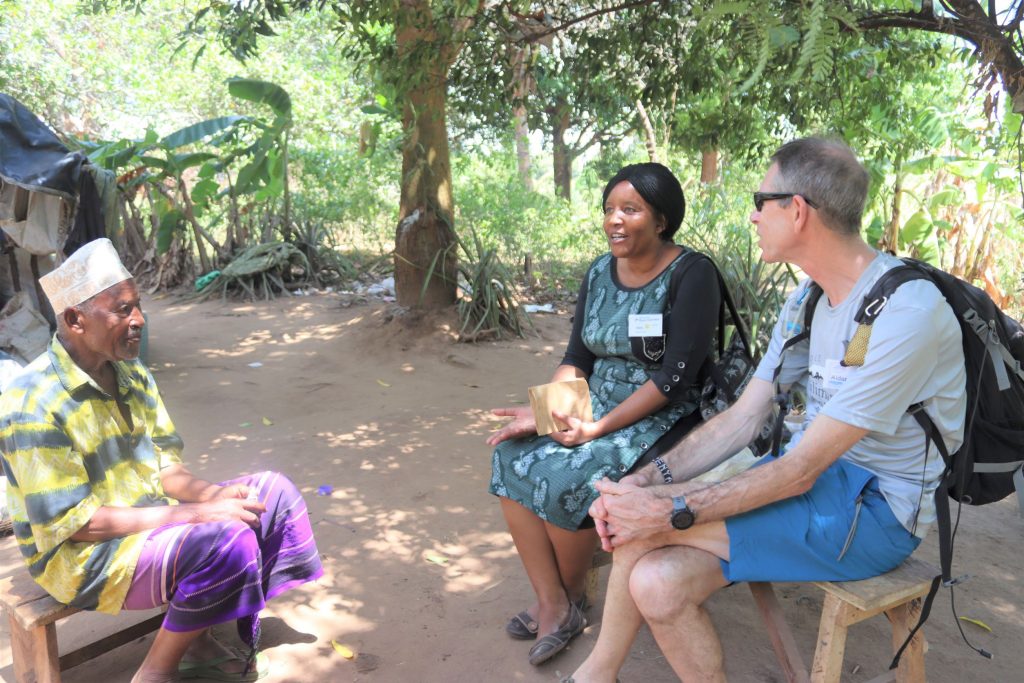
At the second stop, I was given a traditional stool to sit on. It was comfortable for a while!
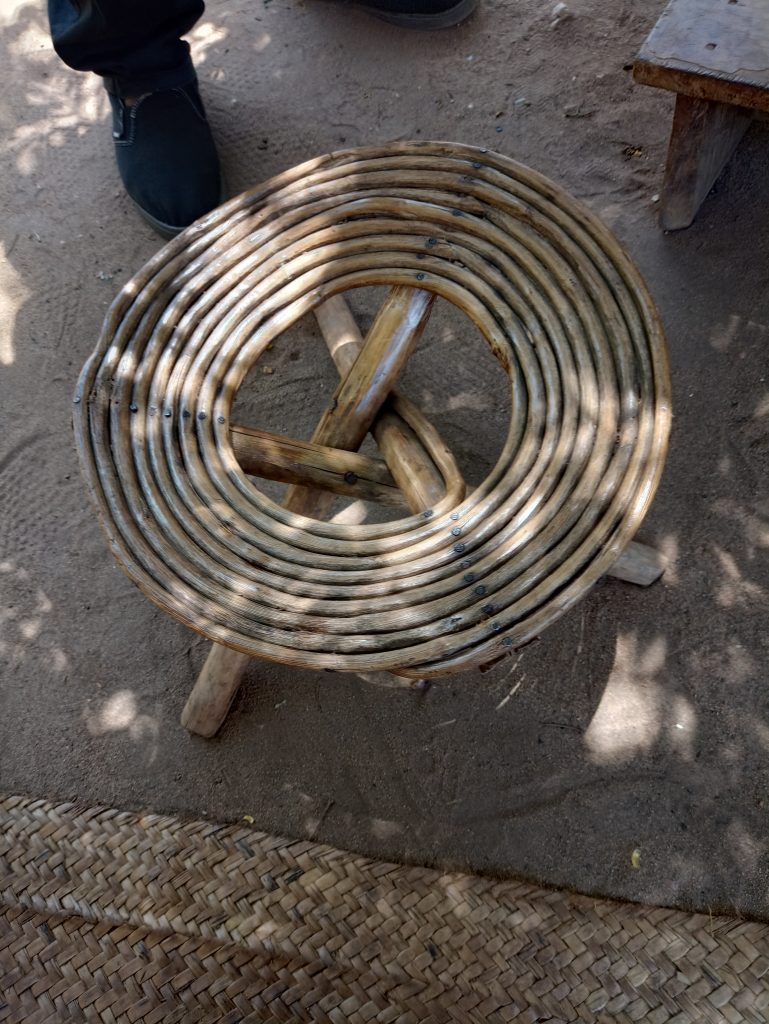
The patient is out of shot – we’re talking with her over her family.
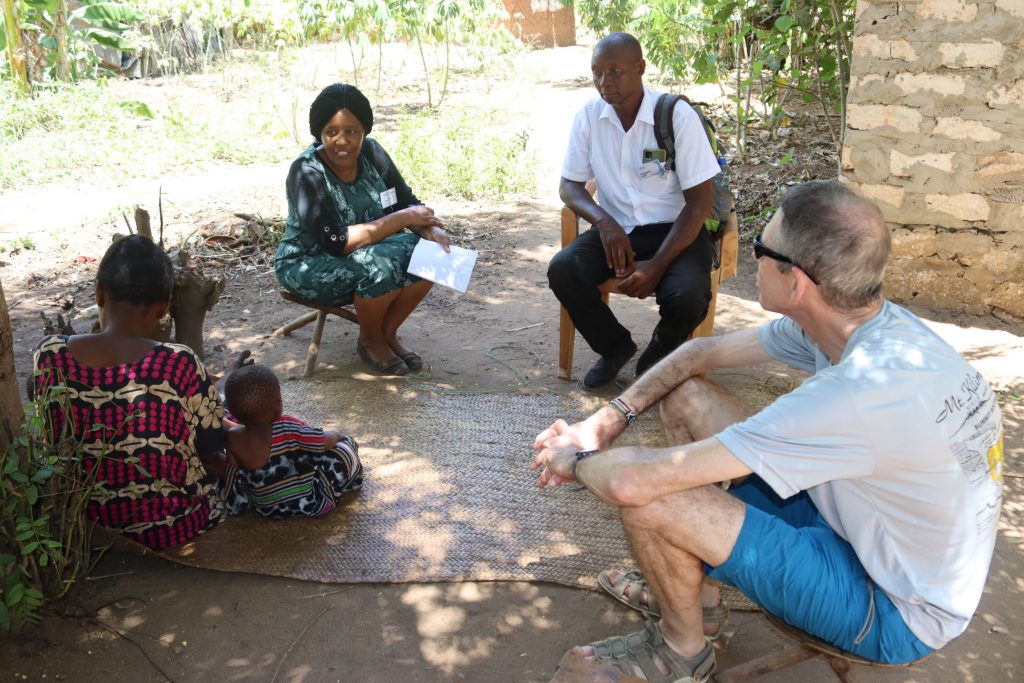
These are the patient’s twin granddaughters: she’d never seen them until after her cataract operation. She was so happy.
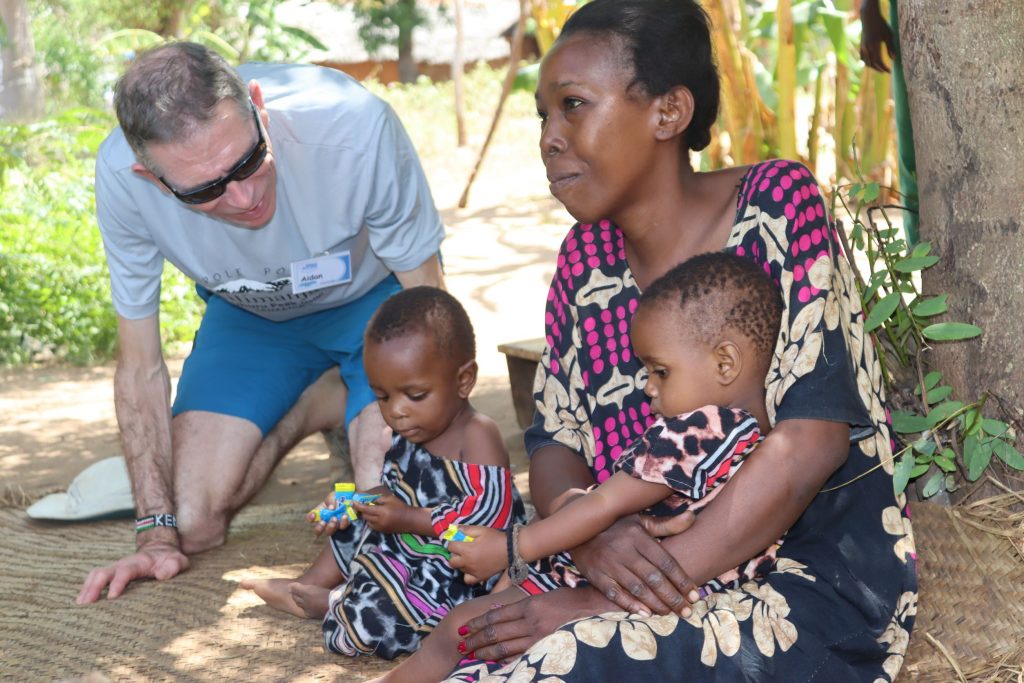
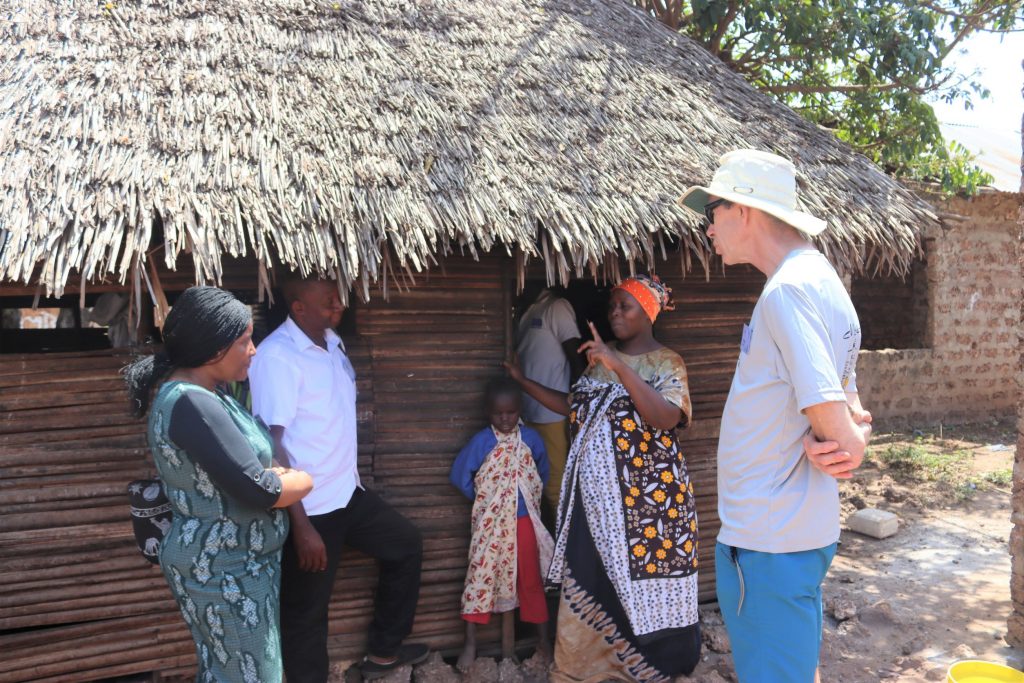
The third patient was a lady (in her thirties I’d guess) with children. When she lost her sight to cataracts she was unable to work, unable to do much for her family, and life fell apart. She was told she was incurable, tried the witch doctor, tried herbal treatment in Tanzania, all to no effect. Then she was discovered by the field worker’s network and was soon treated and is back caring for her family, working as a cook, and happy.
I guess this last bit was the eye-opener for me (pardon the intended pun). I thought access to healthcare was the problem (well, it is a problem), but awareness and education is also a problem. People don;t know that conditions are treatable, or where to get help. As with other illnesses and disabilities (epilepsy, deafness) sufferers are too often considered an embarrassment and hidden away. A bigger part of the centre’s worh than I’ ever imagined is trying to get the word out there that help is available.
Well, after all that driving and visiting (I was the driver) I was hungry, so we stopped for lunch in Shimoni – samaki na ugali.
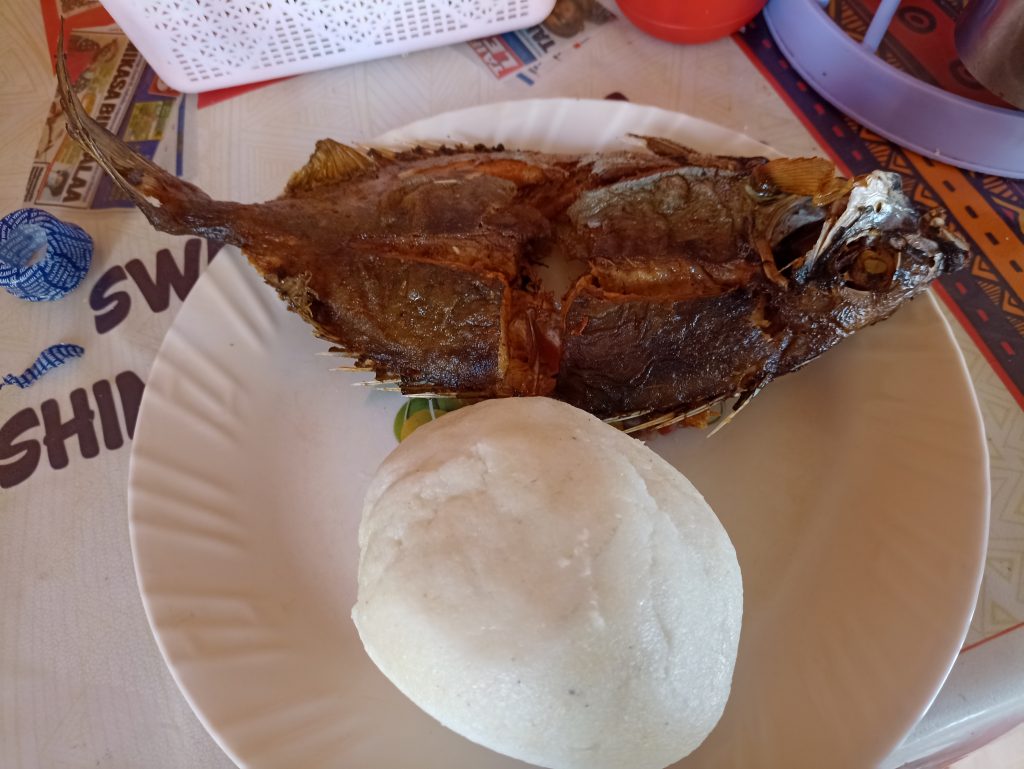
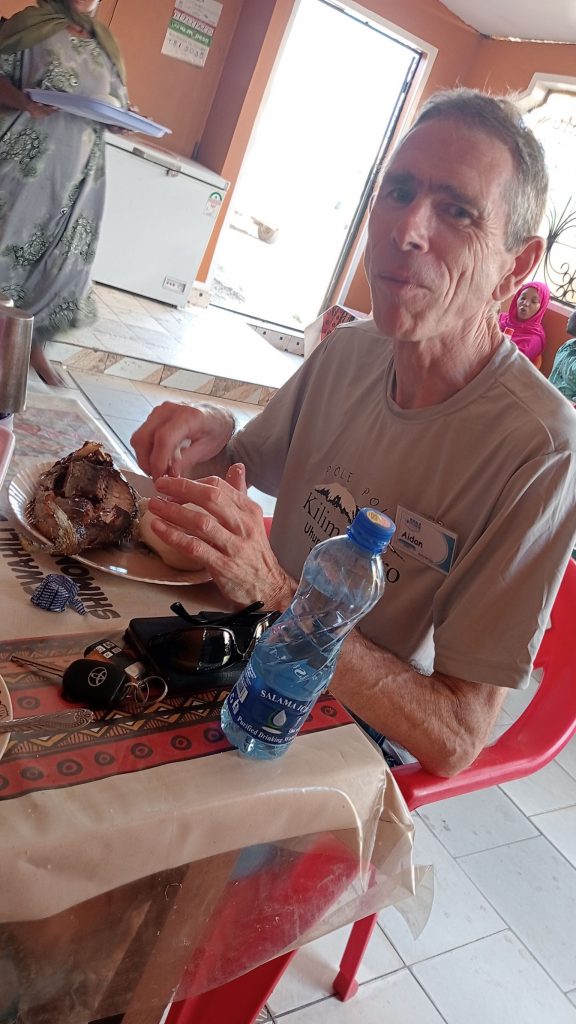
I returned to the Eye Centre on my way north 2 days later, giving feedback on the field visits to the doctors, then touring the departments again as a patient – glasses check, eye exam, then being used as a training aid by Dr Helen showing students what Fuchs Dystrophy looks like.
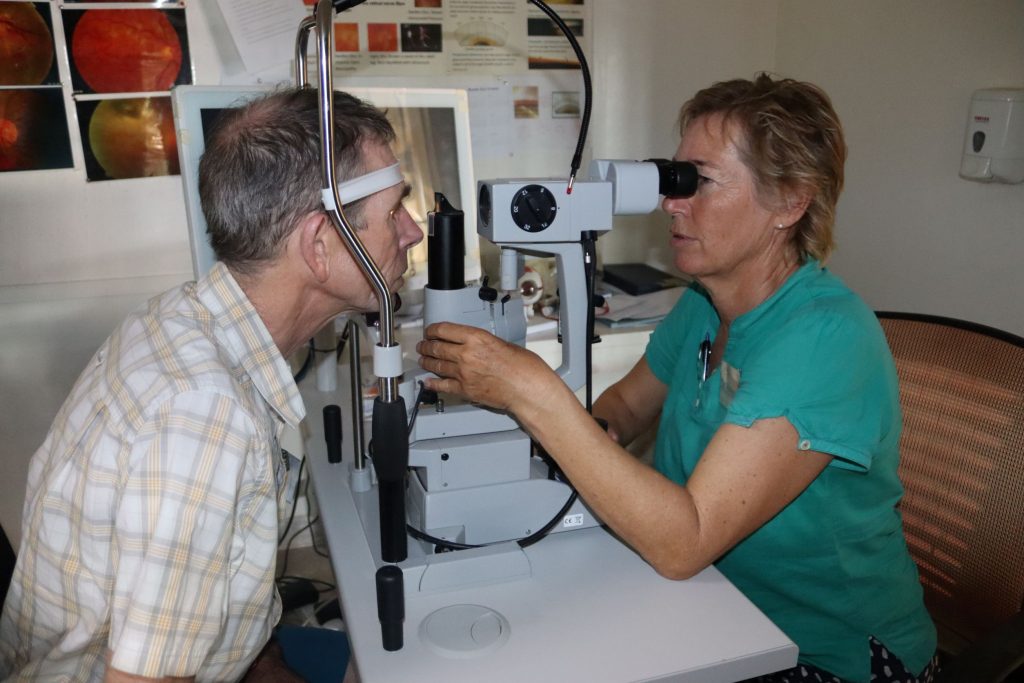
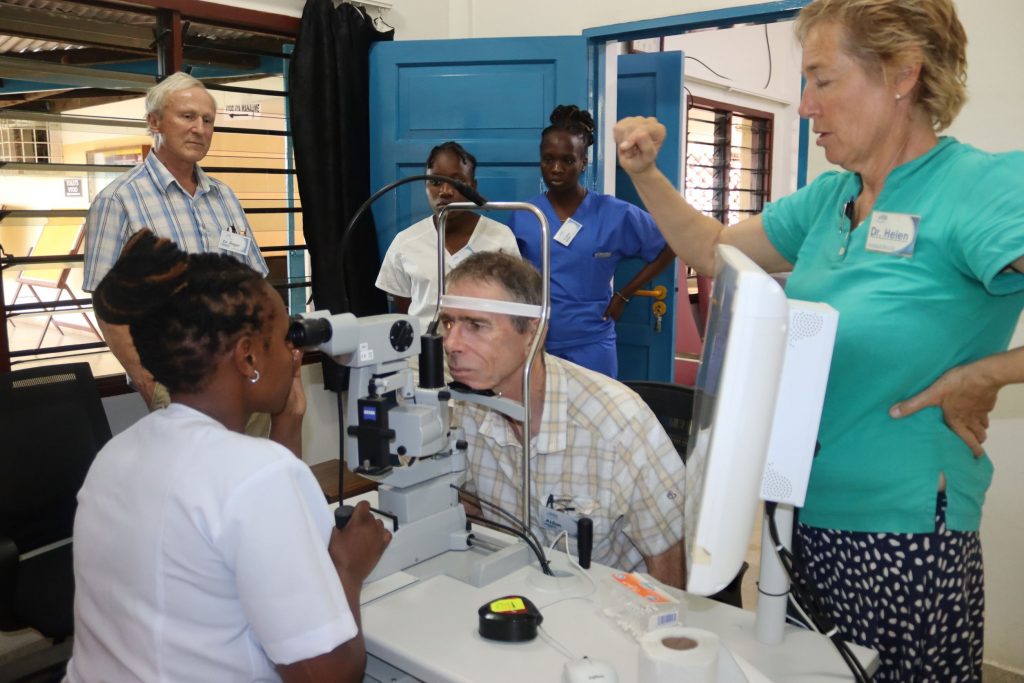
Thanks to Mishi who took all the photos (and is therefore in none!)).